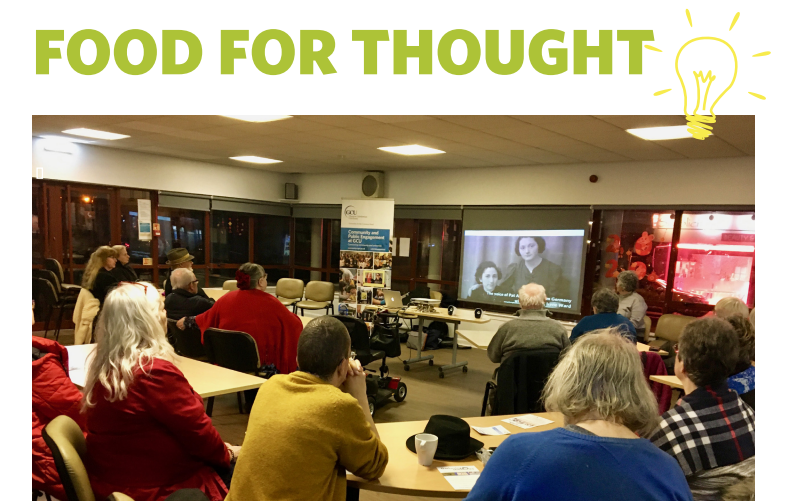Dr Angela Shapiro presents to the Queens Cross Housing Association
Food for Thought is a free engaging and informative talk series on research which is relevant to people’s lives followed by dinner and discussion in community venues in North Glasgow. Continue Reading Dr Angela Shapiro presents to the Queens Cross Housing Association

